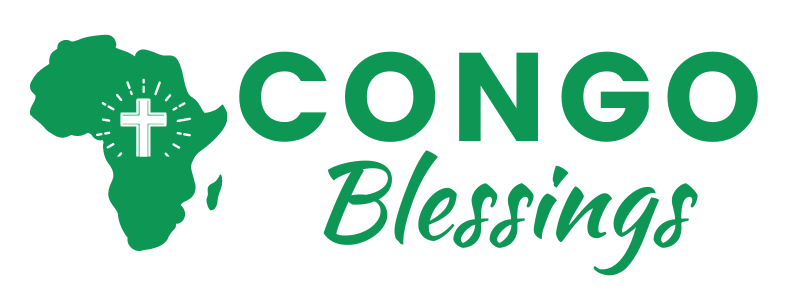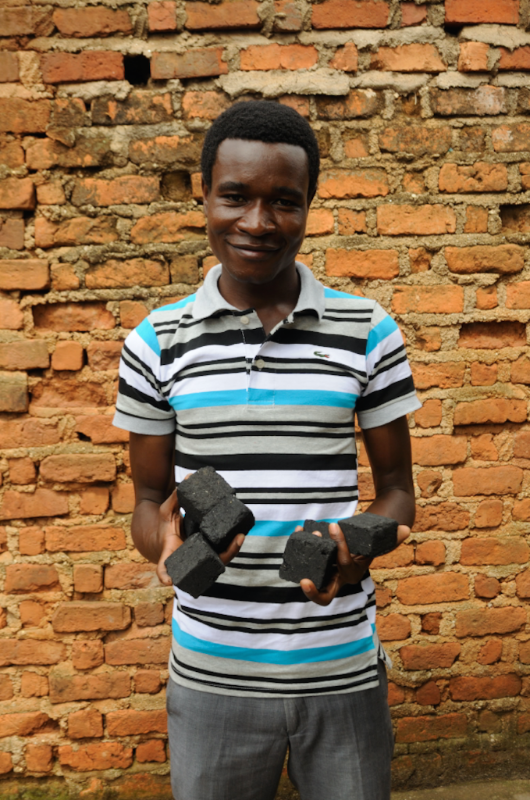Summary
We show up and do good (Galatians 6:9-10). Frankly, it is a deeply satisfying experience, a gift from God. The benefit far outweighs the cost in terms of time, money and most acutely, the sadness of understanding their reality.
Several Congolese people remarked at how much they appreciate our coming especially considering the growing troubles in the country. More details below.
Joshua, one of our long-time friends, said that our coming tells them that God still loves them and is for them.
Far beyond the value of showing up, we had a great trip.
I had significant questions about the value of our work prior to the trip, but the trip was much better than I expected in terms of God’s confirmation of our basic strategies:
- Building relationships and proclaiming truth in matters of the world and of Jesus that will set people free;
- Building relationships and focusing on expansion of leadership capacity; and
- Building relationships and bringing specific life-enhancing (“on earth as it is in heaven”) expertise, ideas and relevant resources (business formation, videography) to the Congolese people in lieu of money.
We heard words “played back” to us that we had spoken several years ago. Below, I share some of the power of ideas to set people free. It still seems odd that the truth is such a powerful and essential antidote to poverty.
The trip was more difficult than I thought. I only felt “normal” one day between jet lag on the front end and a cold on the back end.
The trip was more humbling than I thought – teaching rural pastors who earn about $400 per YEAR and implying that money should not be their focus. The learnings from the meeting with the rural pastors will blow your mind. I share some details below.
Our trip to see the gorillas was special. See pictures below.
We are tentatively planning another trip in late January 2019. We would like to have some people with a modest level of expertise in information technology, programming, education or agriculture join us on an exploratory trip. Perhaps your expertise is in another area but feel like it is time to come with us. Come on; your time will not be wasted.
Losing Heart
Galatians 6:9-10 says, “Let us not lose heart in doing good, for in due time we will reap if we do not grow weary. So then, while we have opportunity, let us do good to all people, and especially to those who are of the household of the faith.” In many ways these verses summarize our ministry in the Congo.
I need these words because it is quite easy to lose heart in doing good. I do not feel a sense of accomplishment when the gap between life in Congo and America is so great and increasing. Like most Americans, I want results now. I would not have done well living as an Israelite in the midst of 400 years of slavery in Egypt. God has a different sense of time and a different way to measure results. More on those topics later in this email.
Because our focus is on relationships with key people, the team is able to continue doing good between our trips through Skype, Facebook Messenger and What’s App.
Turmoil
The Congolese President has exceeded his term limits but has not found the money to hold an election –very convenient. Many countries, including the US, have demanded that he leave the presidency. Since the President appoints most officials, including governors and mayors, this situation creates great uncertainty. Since our last trip two years ago, we observed the deterioration of personal security and an increasing desperation of the people. Desperate people are focused on survival, not loving their neighbors. This desperation also reduces the already minimal trust in the society.
Problems are Our Friend
We try to communicate simple, but powerful ideas. One idea is: “Problems are our friend.” Problems represent an opportunity to create a business to solve the problem and generate revenue and profit from satisfied customers.
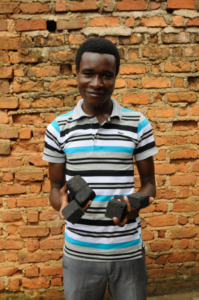
Our translator, Solomon, noticed a growing problem of agricultural waste like corn husks littering the city. In addition, the price of traditional charcoal is increasing with people paying $1 per day just to cook – a substantial sum. Traditional charcoal destroys forests because people cut down the trees and turn the trees into lump charcoal (not like Kingsford briquets). Solomon discovered a way to transform agriculture waste into briquets. He has perfected his method and is now working on his “go to market” strategy, which in the Congo is more complicated than you might think.
This success appears small in relation to the poverty and other problems in eastern Congo; however, we work deliberately with people like Solomon so that they begin to influence others.
Congo Leadership Institute
We spent the last weekend with a new group of 12 young leaders who will learn leadership skills during the next 12 months. The 2018 class is the third group of leaders to be
trained. Paul, one of our long-time friends, began this initiative in 2016. We help him think through the curriculum, provide Kindle Fires so that they have access to books, and sponsor the annual retreat, including speaking to these leaders.
During the weekend, we heard testimonies from graduates of the previous two classes. Here are some great excerpts:
- I used to think you could only worship God at church. Now I realize you can worship anytime and anyplace. Worship is especially necessary for leaders. I also learned that a leader is not just a position but how you behave. I thought only the president and the manager of a business were leaders. Now I know I can be a leader. Finally, reading has become part of my life. Now, I read daily. I also study the Bible. (a young woman)
- I used to think change happens when leaders give orders. Now I know that change starts with what happens inside a person. People lead by making change attractive. I used not to read. In the program, I read to get the certificate. Now I read as part of creating change. Finally, now I have a vision for society.
- Now I see challenges as opportunities.
- The Congo Leadership Institute has changed my life. I used to think people should do things for me. Now I can do things for others. I have the self-confidence which is required for change. Today, I see myself as a leader because I serve others.
- The books I read changed my behavior. I have also changed spiritually. Now I am preaching at a church. Now I realize knowledge is valuable. I used to believe that being a leader is like being a politician. Now I know different.
- At the beginning, I was curious because they said our model leader is Jesus. I learned that you do not become a leader because of position in society but because of habits that you practice. Reading the books helped me see I needed to change the way I live.
- Before I was lost. I was working but had no ambition. The books helped me. I have learned new principles. I have learned to think independently and that I am the master of my life. I have learned to look at the decisions that I made that caused a failure, rather than blaming others. I must learn from my failures. In addition, I know now that I can discuss my problems with others.
- I used to think I was influential. In the program, I came to discover that I was not very influential. Now, I have aspirations to change. I have also learned that to be a leader you have to identify what you have been created to do by God.
These testimonies were good to hear. The Congo needs more leaders who think like these leaders have learned to think.
Meeting with Rural Pastors
We met with a group of 14 pastors from a rural area where we have placed more than 500 Bibles in the form of solar powered MP3 players. (They traveled to Bukavu.)
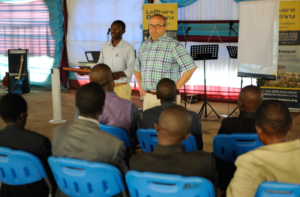
The goals of this two-day meeting were:
- Understand how the Bibles had been used
- Learn about the reality of being a pastor and of life in these communities
- Attempt to put more structure around Bible listening
- Encourage the pastors to be light in their churches and for their churches to be light in their communities.
Here are some of the learnings about the reality of life:
- The congregations are extremely poor. It is likely that poor farming practices, in addition to plant disease and insects, have worked together to reduce crop yields. We hope to send an expert to the field to review the situation to see if we can help improve it. We hope that church could be a “light” in the community with respect to growing crop yields.
- Being a pastor is one of the few ways to earn a consistent income.
- To protect their income, some pastors will poison another pastor if people think that pastor preaches better. That is one way to eliminate competition.
- The pastors’ average income is $400 per year — $250 from the church and $150 from odd jobs. I cannot wrap my mind around that little income.
- Congregation members want the pastors to solve their money problems by giving them money.
- Circumstances are desperate and growing more desperate. Think desperation in terms of mere survival.
- Insecurity is a big concern. One pastor from the area was kidnapped while we were meeting. Previously, I thought of insecurity as rebel groups battling over territory. In reality, the rebels live in the communities. They have guns and the rest of the population does not. They will use their guns to rob people or “rent” their guns to others who can do the same.
- Some of the insecurity is about survival. But it is not all survival; some of it is about power and humiliation. I heard that a bus ( I think a 15 passenger van with 25 people in it) was stopped as it was traveling between two villages. The people were removed from the bus and stripped. All of the luggage and goods were removed from the bus. The people got back on the bus and were permitted to leave – naked.
- Due in part to the issues above, trust between the people in these churches as well as between people in the broader communities is virtually non-existent. Life is really challenging when you cannot trust anyone, even family members.
Related to the distribution of the Bibles, we were encouraged by the stories and the structures that some pastors had created. There is much room for improvement and we identified five critical success factors for listening programs.
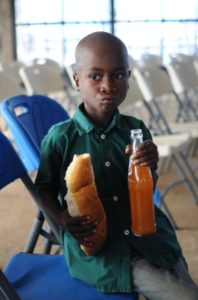
Here are two quick stories related to the use of the Bibles:
- One pastor said that he puts his Bible player in the window of his house while listening to it. He said that as many as 30 people will stop and listen. One person remarked that the “preaching”was better than her pastor’s preaching. One of our goals is to get the Bible in the hands of the people so they can listen to it directly, not just through a pastor. Hmm, that situation sounds like the Reformation all over again.
- One young boy (8-10) had memorized multiple chapters of Matthew just from listening to the Bible regularly. He recited them for us. What a treat!
Microfinancing: What’s Next?
Microfinancing has been a big help to many people. Typically, microfinance programs make loans of $50 to $200 to women to purchase the initial inventory of items to sell. Microfinance programs have proliferated; therefore, there are many people selling the same stuff. Demand may have increased due to more convenient availability and population growth, but demand growth has not kept up with supply growth. Now these micro businesses are hurting because revenue is down. Please do not construe these comments as criticisms; they are observations based on discussions with several people.
We pray that God will send us the people who have the desire to grow their businesses and inject some creativity into their businesses. Just as businesses have to change in the States to stay relevant (think retail and Amazon), businesses in the Congo have to do the same.
Vegetable Seed Experiment
We like to conduct experiments. On our last trip, one friend gave us many pounds of vegetable seeds so that people could grow vegetables in a garden. Mike worked with a few trusted people to distribute the seeds. Since the seed gift came to us just before we left on the last trip two years ago, we did not have a chance to develop a structured program. When we inquired how the experiment went, the answers were uniformly “great.” We asked what the harvest was like the second year and the answer was zero. No one saved and dried seeds from the first harvest to plant for a second harvest. Ugh.
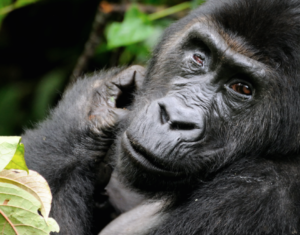
We strive to match resources (typically not money) with relationships so that initiatives can survive over the long term. The vegetable seed experiment was another example of the importance of that approach.
The Gorillas
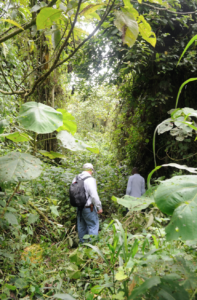
We try to relax a bit one day during the trip. This year we spent that day visiting the eastern lowland gorillas (silverbacks) up
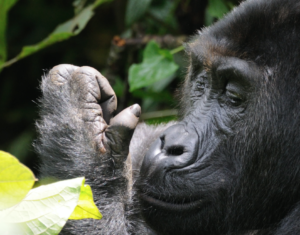 close and personal in Kahuzi Biega National Park. Most of the time we are about 10 feet away. You can see them at Disney World’s Animal Kingdom, but you are separated by 2 inches of glass. How boring!
close and personal in Kahuzi Biega National Park. Most of the time we are about 10 feet away. You can see them at Disney World’s Animal Kingdom, but you are separated by 2 inches of glass. How boring!
To get to the gorillas, we walked for about an hour through the jungle. We had two guys cutting a path with machetes. Frequently, we were walking on the stalks and branches of vegetation suspended above the dirt. It’s a little bit like trying to run on dry sand at the beach. It was especially challenging when we were trying to walk on a steep hill.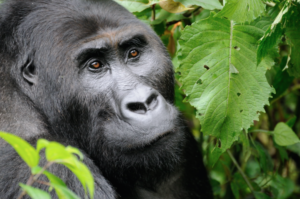
You can find more great gorilla pictures here.
Conclusions:
- Ivan and Mike did a fabulous job of building relationships with everyone we encountered. They have a love for people and a desire to help – that is pretty much all that is necessary to be fruitful there. They are also great friends and travel companions.
- Powerful, exploitative people are abundant; powerful ideas are rare. God is using His powerful ideas that we proclaim to change people’s hearts, minds, and lives – both spiritually and physically. We are confident that He will use these ideas to lead people out of poverty.
- Our strategy of developing relationships with leaders of leaders is working. God has brought us some faithful people that He is using to bring change. These people need prayer, encouragement, ideas and material goods from outside the country.
- More likely than not, the poverty and insecurity in eastern Congo (and perhaps all of Congo) will get worse before it gets better. This prediction is based on the changes that I saw on this trip as compared with our trip two years ago. The President is being pressured to hold an election and transfer power because his term expired more than one year ago. The uncertainty around the change in power has caused people to become more insecure and desperate, leading to more crime and actions by the powerful against the powerless.
If you have any questions, you can just reply to this email.
For the team,
Greg
